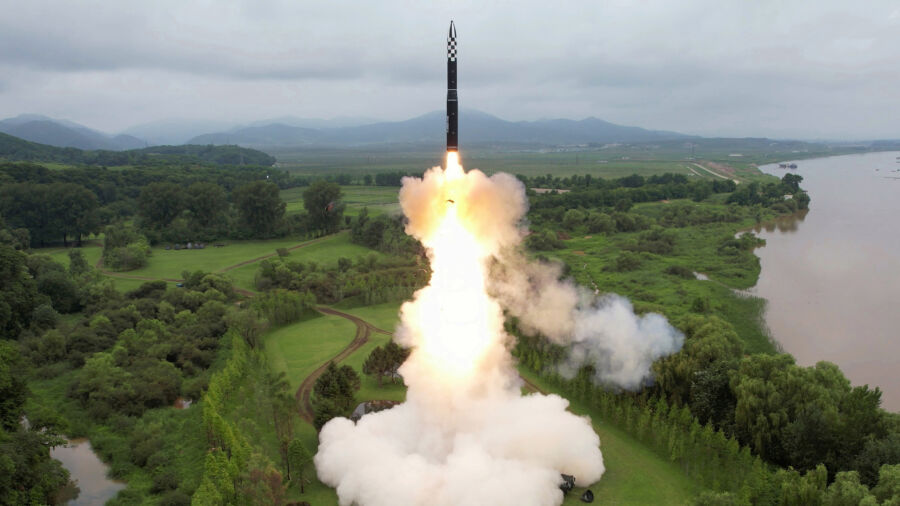Russia is investigating whether a North Korean intercontinental ballistic missile crashed in its waters during a test launch on Wednesday, state media reported.
State-owned news agencies RIA and TASS quoted Deputy Foreign Minister Andrei Rudenko as saying that Russia’s defense ministry was investigating, but “so far we have no clear information that the missile fell in Russia’s economic zone.”
The test was condemned by the United States, South Korea, and Japan, but Mr. Rudenko said it was a reaction to actions by Washington and its allies that “actually provoke North Korea to build up its defense power.”
North Korea has been aggressively condemning the yearly joint military drills of the United States and South Korea held in spring, which typically include air and sea drills. Pyongyang even warned of nuclear war after this year’s exercises, calling them a rehearsal for invasion.
The rocket launched was North Korea’s latest developed type of intercontinental ballistic missile (ICBM), a Hwasong-18 missile, which the communist state announced it first tested successfully in April.
At the time, North Korean state media stated that the solid-fuel propelled missile capable of carrying nuclear warheads would “extensively reform the strategic deterrence components of the DPRK, radically promote the effectiveness of its nuclear counterattack posture and bring about a change in the practicality of its offensive military strategy,” referring to the country’s official name—Democratic People’s Republic of Korea—by its acronym.
Solid rocket fuel missiles boast several tactical advantages over the more common liquid fuel rockets. For one, solid fuel has a longer shelf life, which allows for missiles to be kept in a state of readiness for extended periods of time.
Rockets powered by liquid propellants typically need to be loaded with fuel at their launch site, a dangerous and time-consuming process that requires additional infrastructure and/or logistical support.
In reporting the missile launch, North Korean state media said that the test fire was a “strong practical warning” to the United States and other adversaries.
North Korea has been under United Nations sanctions for its missile and nuclear programs since 2006, but the U.N. Security Council has been divided for the past several years on how to deal with it. Russia and China, which both wield veto powers on the council, have said more sanctions will not help and want such measures to be eased.
U.N. Assistant Secretary-General Khaled Khiari said on Thursday that the latest North Korean missile flight lasted about 74 minutes and traveled over 625 miles (1,000 kilometers), roughly the same distance as the first Hwasong-18 missile launched in April, which plunged into waters east of North Korea.
Mr. Khiari said Wednesday’s rocket crashed close to Japanese waters but within Russian maritime territory.
Reuters contributed to this report.

